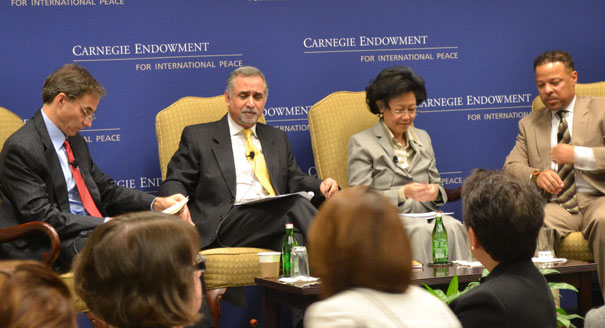Registration
You will receive an email confirming your registration.
In a close general election on May 5, Malaysia’s ruling Barisan Nasional (BN) coalition retained power despite securing less than 50 percent of the popular vote. While BN has been in power since 1957, this election has highlighted serious differences in opinion between rural and urban areas, the poor and the middle class, and majority Malays and minority racial groups. Prime Minister Najib now faces the challenging task of bringing the nation together and addressing the deep fault lines revealed by the election while pressing ahead with economic reforms.
U.S. Ambassador to Malaysia Paul W. Jones, American University’s Pek Koon Heng, and the US-ASEAN Business Council’s Marc Mealy discussed the outcomes and implications of Malaysia’s elections. Carnegie’s Vikram Nehru moderated. This event was held under Chatham House Rules.
